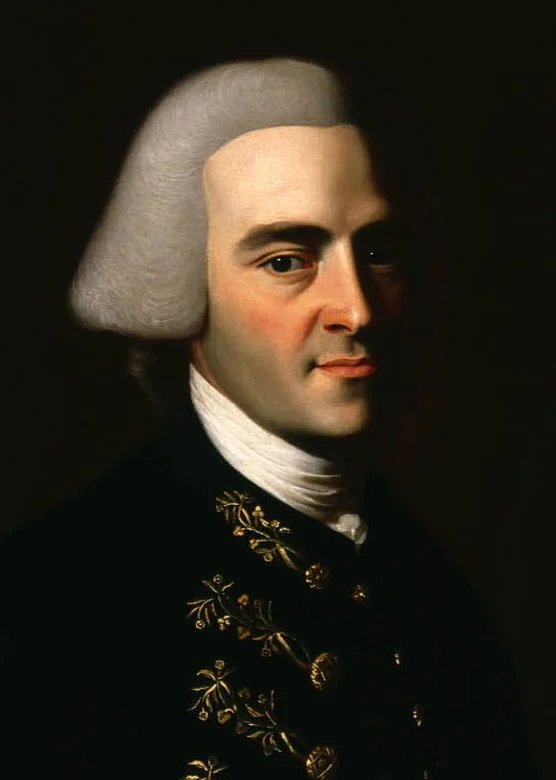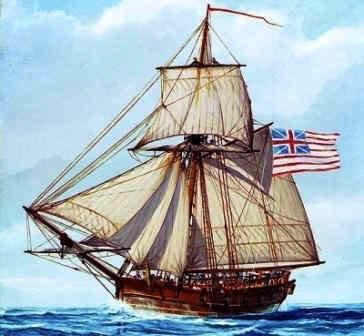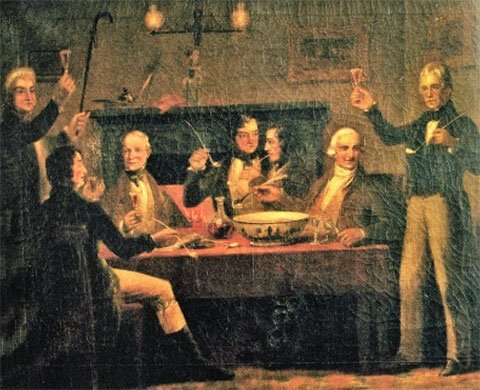The American Revolution
The Island of Madeira had a huge impact on the discovery and development of the New World. Christopher Columbus was a significant factor. But Madeira Wine was perhaps of even greater importance!
“Madeira Wine fueled the American Revolution?”
The ‘North Atlantic Gyre’ or the currents & winds that carried Portuguese during the Age of Discovery of the 15th and 16th centuries.
Portugal was at the forefront of European exploration as they established trading posts along the West Coast of Africa, India, Asia and Africa, and eventually settling Brazil.
The dependable south-westerly trade winds carried vessels southwest from Europe to Madeira making the islands the perfect resupply port travelling from Europe to the West Indies and Americas.
“The equally dependable northeasterly carried them home again.”
Christopher Columbus is most famous for establishing navigable routes to the Americas and in his wake came the European diaspora eager to take advantage of a brave ‘New World’.
Vintage Madeira Wine stored in the basement of Blandy’s Wine Lodge in Funchal dates back to 1811
NEEDED A DRINK!
As the American colonies were established, it was discovered that there were no ‘wine-quality’ grapes to be found anywhere in the original thirteen colonies, a serious problem for the Founding Fathers and their thirsty followers. Fermented wine and beer in those days were the beverages of choice rather than taking the risks of drinking contaminated water.
Besides that, who would say no to a ‘wee tipple’ while establishing an entire new continent?
MADEIRA WINE
Fortified Madeira Wine with its ability to travel without spoiling, soon became the spirit of choice. By the late 1600s, ‘The Madeira’ had monopolised the American ‘drinks’ market and a certain shipping agent, John Hancock, based in Boston was its leading importer.
John Hancock in 1770
Eager to increase his profits and avoid taxes, Hancock took to smuggling Madeira into the fledgling colonies under the noses of the English excisemen. This led to the seizure of his ship, ‘The Liberty’ by the colonial governors in the port of Boston in 1768.
The Liberty became the flagship of political dissent in the fledgling American colonies
“The incident became key to the colony’s swing toward independence”
On the face of it, the incident didn’t seem very significant but it became key to the colony's swing toward independence!
Boston locals, learning that they would not be getting their regular supply of Madeira due to the excisemen’s exuberance became surly, assaulting the customs office, smashing the inspector general’s windows and making a bonfire of his personal pleasure boat.
“The English authorities were not amused! ”
A lawsuit filed against him by the English governor for unpaid taxes led Hancock to enlist the services of the top lawyer of the day, John Adams who won the case, dealing the first judicial blow to British rule in the colonies and further fanning the sparks of dissent!
John Adams was a Founding Father of the United States who served as the second president from 1797 to 1801. Portrait by Gilbert Stuart, c. 1800–1815
Hancock won his day in court but his sloop ‘The Liberty’ had already been confiscated and refitted to serve as a Royal Navy ship The ‘HMS Liberty’, ironically used to patrol off Rhode Island for customs violations.
“It’s interesting how one ship led such a pivotal role in bringing the American colonies to ‘Liberty’. ”
‘The HMS Liberty’ was set on fire the next year by American colonists in Newport, Rhode Island in one of the first acts of open defiance against the British crown by the colonists.
The lawyer, John Adams went on to become the United States’ second president (1797-1801) and Hancock himself entered politics, a close friend of the colonial leaders, no doubt imbuing them with their favourite tipple.
Thomas Jefferson used Malmsey to toast the Declaration of Independence.
When Independence finally came on July 4, 1776, Thomas Jefferson used ‘Malmsey’ Madeira to toast the Declaration of Independence as the 13 American colonies severed their political connections with Great Britain.
The signing of the American Declaration of Independence on August 2, 1776, at the Pennsylvania State House in Philadelphia,
The new nation’s first president, George Washington was a keen imbiber of ‘the Madeira’ as were his followers, Benjamin Franklin and John Adams. Washington was known to drink a bottle of Madeira every day and he commissioned copious amounts for his army throughout the Revolutionary War.
Malmsey wine still maturing beneath Blandy’s Wine Lodge
LIBERTY HALL
As a footnote, in 2017, at the Liberty Hall Museum in New Jersey, during restoration work, Madeira wine dating back to just after the American War of Independence was discovered. Three cases of Madeira, according to their labels imported in 1796, were discovered, bricked up behind a wall. In the attic, beneath piles of straw, they discovered a further 40 demijohns of Madeira dating from the 1820s, apparently all still drinkable!







